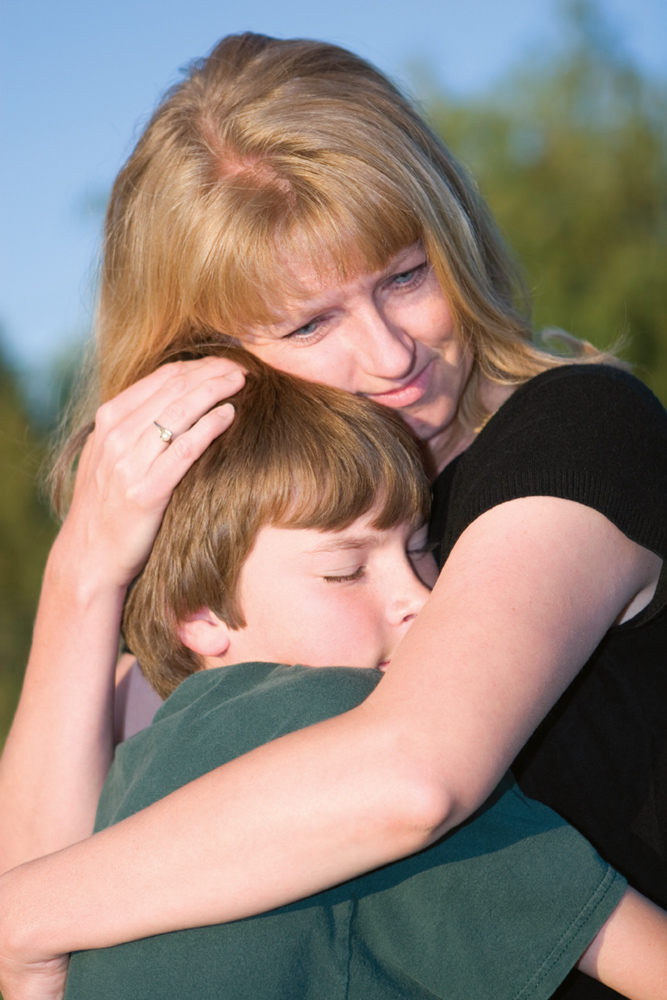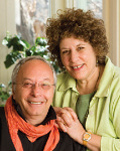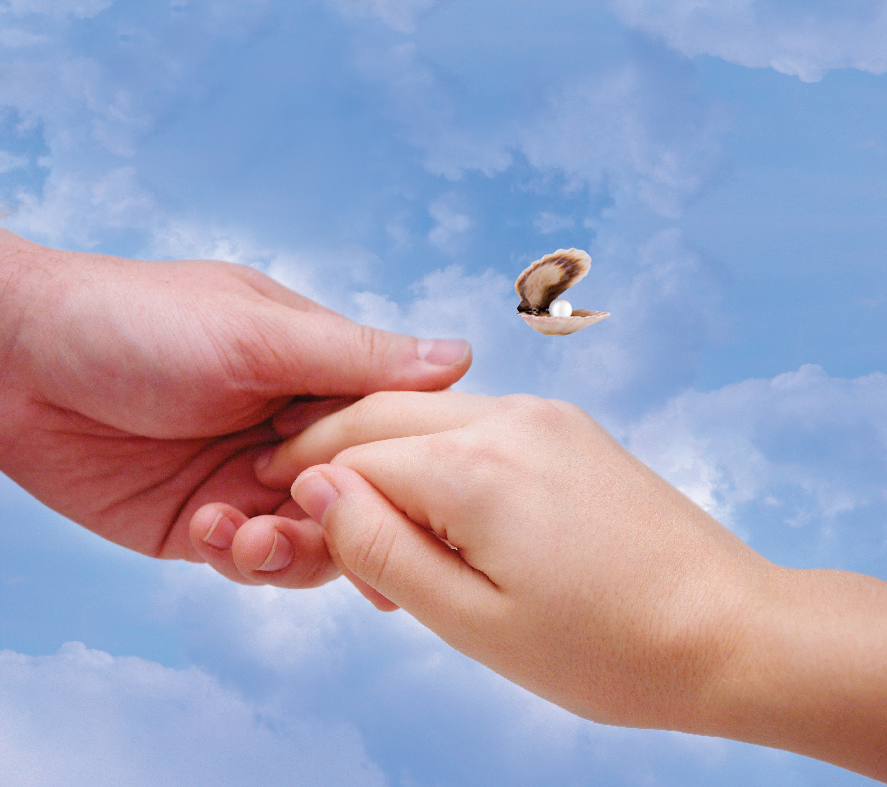Without forgiveness, human society and existence are impossible.
– Bishop Tutu
We attended a conference focused on gaining insight into men’s issues. Brian stood up to describe the abuse that he had received from his father when he was a child. Among other things, his father had threatened him by holding a shotgun to his head.
This is serious abuse indeed, and Brian talked about it with anger and bitterness. He said quite emphatically that he would never be able to forgive his father. After Brian had spoken, there were a few minutes of stunned silence. Then a man at the back of the room stood up and simply said, “If you can’t forgive, then you can’t dance.”
What was so eloquently voiced in those few words describes the emotional holding that takes place when there is no forgiveness. Our ability to dance—to move emotionally, to give, to love, to feel alive and free—gets stuck. All the pain, grief, and hurt get held in this immovable or frozen emotional place. We cannot move forward when a part of us is locked in the past, and we cannot be in the present as memories from the past are constantly pulling us away. We become a victim of ourselves.
All around us is the evidence of a lack of forgiveness: broken families, self-hate, guilt and shame leading to depression, countries at war, huge amounts of fear and anger, bitterness, prejudice, self-righteousness and closed-heartedness.
When something happens that invokes guilt and shame at our own behavior or hurt and rage at someone else’s—it makes no difference—without empathy or forgiveness, the emotion from that incident gets locked inside, held in time, blocking our ability to be happy. We learn to live by ignoring this dark place without realizing how deeply limiting it is, how it holds back our joy and freedom along with the guilt or anger. When the ego is wounded, it points the finger and sees the other person as the cause of the suffering but it does not recognize how, by holding onto hurt feelings, we are simply creating more grief for ourselves.
Forgiving others
How many times have we rerun the tape, gone over the details of who said what to whom, of how it all happened, of hidden motives, of the injustice and blame, or the guilt and shame? How many times have we done this, and did it ever help us feel healed, more joyful, or happier? How often do we have to do this before we see that all of it is going nowhere other than prolonging our unhappiness?

“The theory behind forgiveness is simple,” writes Ken Wilber in Grace and Grit. “If we are going to insist on identifying with the little self in here, then others are going to bruise it, insult it, injure it . . . The ego’s first maneuver in dealing with this resentment is to try to get others to confess to their faults: ‘You hurt me; say you’re sorry.’ What the ego doesn’t try is forgiveness, because that would undermine its very existence.”
We are not trying to be simplistic. From a rational point of view, it can seem impossible to forgive: we are hurt and want revenge, it is the other person’s fault, so why should we forgive; what we have done appears completely beyond blame. But if we want to reach a place of healing and closure within ourselves then we have to confront our desire to hold on to the story-to keep reliving the details or to get revenge-for this not only causes further suffering but also maintains our separation from each other, limiting our capacity to trust or to love.
To forgive means to fully acknowledge our feelings: how angry, upset, abused, betrayed, bitter, or indignant we are; how unfair life is; how let down or sad we feel, and that it is absolutely okay to feel this way. We know and feel the pain, but the desire to no longer continue the suffering is stronger; we care enough about ourselves to no longer want to carry the anger or sadness. We are ready to reclaim our dignity.
If someone causes hurt, it is invariably because they are hurting within themselves. Have you ever noticed how, if you are feeling good, it is almost impossible for you to harm or hurt anything? You will even take the time to get a spider out of the bath or to let a fly out of the window. But if you are upset or feeling very stressed, then you won’t think twice about washing the spider down the drain. In other words, our inner torment will spill out and harm anyone or anything in its way.
Forgiveness is not about denying the suffering or ignoring the depth of our feelings. It is not the same as forgetting, which simply puts our feelings in some distant recess from where they usually re-emerge and cause further pain at a later date. Nor does forgiveness take away from the gravity of what occurred—a heinous or grievous act is just that; it is not acceptable in itself. It does not justify or make right what happened.
Rather, what we are forgiving is the ignorance that led to such behavior. This is the ignorance of our essential interconnectedness—that what I do to you I am also doing to myself. Such ignorance means that greed can dominate our actions; hatred can dominate. As a Jew, Ed was dumbstruck when his teacher, Swami Satchidananda said,
“You even have to forgive Adolph Hitler.” But then Satchidananda added, “You don’t forgive the act, but you forgive the ignorance that perpetrated it. You forgive the being inside and hope they will learn and change.”
When we can bring such understanding to the ignorance and inner pain that perpetuates further pain, while hoping the other person will realize the damage their lack of awareness has caused, then forgiveness and compassion genuinely arise.
If we think we are separate, independent, and not connected to anyone or anything else, then our actions will be self-centered and self-motivating and the more we will be hurt or will hurt another. By recognizing this truth, we are able to release the boundaries that keep us apart, to honor our shared humanness and make connectedness a reality.
We all contain some measure of dark and light, of good and bad; we all have the potential to hurt each other as much as we have the potential to love. The greed, hatred, and ignorance in another person can cause great damage, but within each being is also the potential for kindness, generosity, and selflessness. It may not have manifested yet, but it is there. In the quiet of meditation, we connect more deeply with this latent potential and can touch on our fundamental equality and basic goodness.

Asking for forgiveness
Knowing that we really only hurt another when we ourselves are hurting, we can see how we have lashed out, caused pain, or hurt someone at those times when the pain in ourselves was dominating our feelings and actions. To ask for forgiveness demands courage, humility, and swallowing pride. No one likes to admit they are wrong, but in doing so there is the space for tremendous healing. Saying we are sorry will not change the world, but it will help someone else feel a whole lot better about the world.
“I know that we have to forgive, but actually we need to ask for forgiveness as well,” says psychotherapist Maura Sills. “The truth is we are going to cause harm and be harmed simply because we are human beings. I do not know if I have helped more than done damage, if I have hurt as much as I have helped in my lifetime. So I ask forgiveness for all that I have done, knowingly and unknowingly, consciously or unconsciously, and in return I truly forgive you for what you may have done, knowingly or unknowingly, that has affected me and taken me away from my better good. When we can ask for and give forgiveness, we walk away slightly more humble in what we do and how we are.”
In asking for forgiveness, we are also showing how much we care. We enable the hurt one to heal through the admission of our own weakness and failure. Even if we believe we are right and have nothing to ask forgiveness for, some misunderstanding has caused pain and wherever there is pain we can bring healing. Asking for forgiveness also enables the other to see how they may have participated in the conflict. It breaks down the barriers so two can meet as one again. In that moment, does it matter who is right or wrong?
Forgiving ourselves
We usually focus on forgiving someone else: this other person has done this wrong thing to me, and I am hurt, angry, and upset. We are the abused or victimized one and the other person is the abuser who has done the dirty deed. However, in a recent workshop, we asked how many people were carrying some personal guilt or shame for something they had done in the past that they could not forgive themselves for. At least three-quarters of the people put up their hands. We want healing and forgiveness, but we can find it very hard to give this to ourselves.
We try to avoid looking inside our dark corners, but accumulated guilt, shame, or self-dislike can become crutches for the ego, affecting our activities and behavior. Guilt for what we have done stays with us long after the event: I am such a bad, hopeless, useless, awful, uncaring, hurtful, unlovable person who never gets it right. We even believe guilt is our atonement, that through it we are somehow redeeming our wrong doing, when in reality all it does is to create more suffering. Blame follows guilt. How could I have done such a thing? How can I ever trust myself? How can I ever be trusted by anyone else?

But this is actually like a smokescreen clouding our mind and stopping us from seeing that we are more than the event, that whatever we did is not the whole of us. Without forgetting or repressing what happened, we can put the story down. We can say: “I made a mistake, but I am not the guilt, I am not the mistake, I am not the failure, it happened, but that is not who I am now, and it is not the whole of me.”
Forgiving ourselves is an ongoing process. We criticize or blame ourselves for being hopeless, useless, wrong, stupid; we get caught up in the self-dislike and self-denial, believing we deserve the bad things that happen, that we must have done something wrong to be so abused, thinking we should have known better, that it was all our own fault, that we were asking for it, rejecting ourselves, abandoning ourselves, ignoring or denying our own needs and feelings. Whenever we get caught up in such self-negating thinking, we can simply say, “I forgive myself.” We do not need to create more guilt, shame, or blame—the world has enough already.
Forgiveness in every moment
If we do not forgive, it is like carrying heavy baggage that weighs us down so we cannot move forward, but we cannot leave it as it contains our history. Or it is like holding on to hot coals but we are the ones getting burned. Letting go of the past, of the story and the details, of the ignorance and the selfishness, we open to the present, to who we are now. We do not need to live in the drama, to keep the story alive, to maintain suffering. We can come back to sanity and goodness and bring that sanity into this very moment.
Sitting in meditation, we can come to forgiveness and bring compassion to ourselves, making friends with who we are, knowing we cannot change the past but we can change our attitude toward it. As we see beyond our own limitations, beyond the ego, a remarkable thing begins to happen. The boundaries that normally keep us isolated from intimacy, boundaries that have been constructed and maintained over the years to protect us from being hurt, begin to come down, like old walls crumbling and falling. In meditation, we know our deep connection to each other, that there is no separation.
In this way, forgiveness is truly revolutionary. It releases the pain of the past so we are free to live in the present. It changes fear and hate into love and acceptance, just as an oyster uses the irritation from a grain of sand to produce the beauty of a pearl. It enables us all to live with kindness and caring.

Ed and Deb Shapiro have been teaching and writing about meditation for over 30 years and are the authors of over 20 books. Their latest is The Unexpected Power of Mindfulness & Meditation and The Art of Mindful Relaxation. Deb is the author of Your Body Speaks Your Mind, now in over 20 languages. See more at EdandDebShapiro.com




